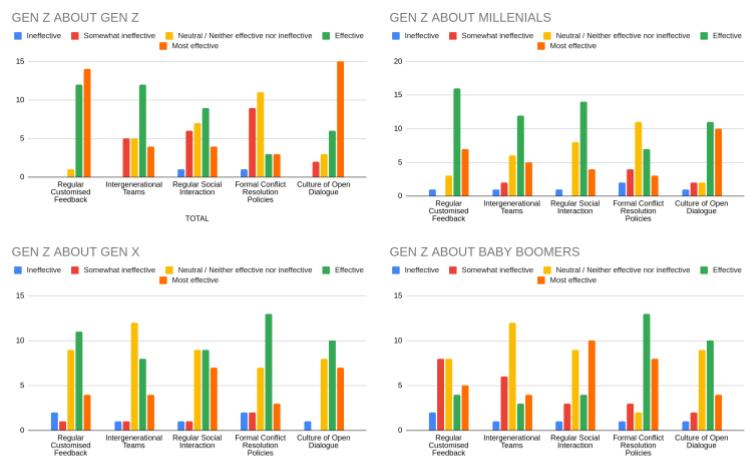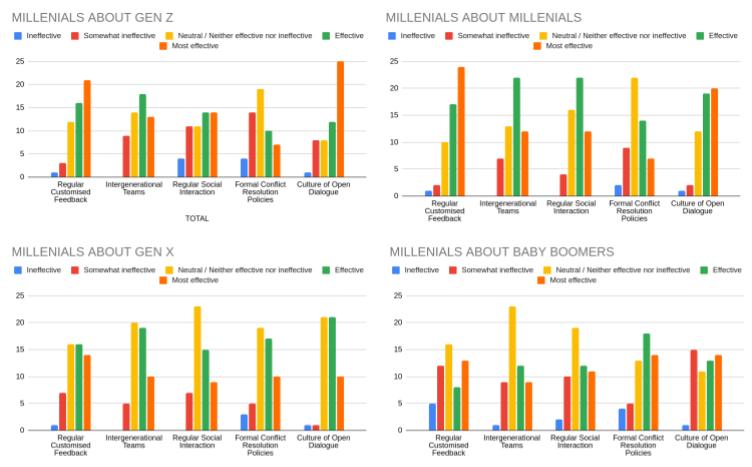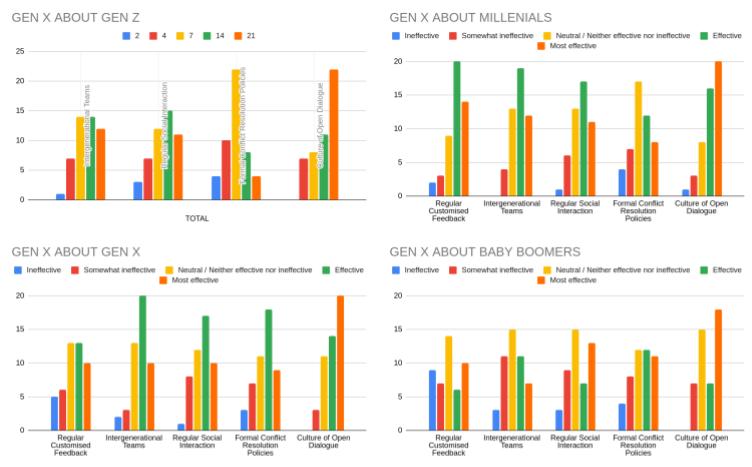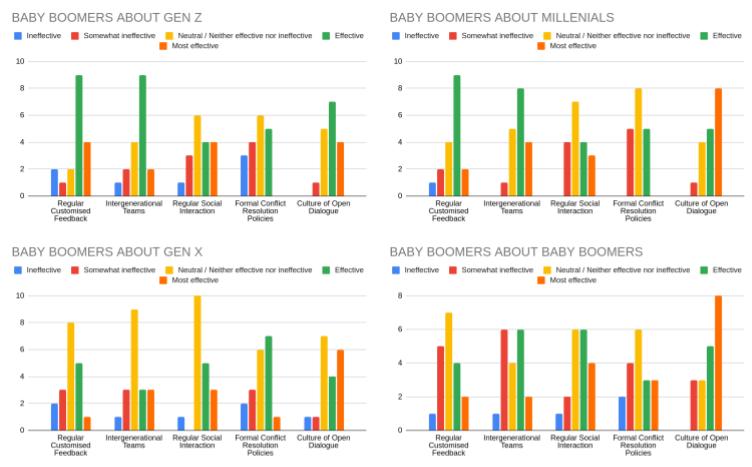19. In your experience which of the following conflict prevention and management tools is most effective for each generation? 1= ineffective 5= most effective

This question asks participants to rate, based on their experience, the effectiveness of various conflict prevention and management tools for generational conflicts in the workplace. Respondents were asked to assign a value from one to five, where lower values indicate a perception of lower effectiveness and higher values indicate greater effectiveness. This approach allowed for nuanced feedback on the perceived utility and impact of the tools considered.
The tools evaluated include:
- Regular customised feedback
- Intergenerational teams
- Regular social interaction
- Formal conflict resolution policies
- Culture of open dialogue
The data are organized by the generation providing the rating and the generation being rated, enabling an analysis of how each generation perceives the effectiveness of these tools both for themselves and for other generations.
Gen Z self-assessment:
They rate the Culture of Open Dialogue as very effective and Regular Social Interaction. Regular Customised Feedback and Intergenerational Teams are also considered effective tools. Formal conflict resolution policies receive slightly lower ratings.
Gen Z on Millennials:
Gen Z perceives Millennials as very effective in using the culture of dialogue and social interaction, with good ratings also for feedback and teams.
Gen Z on Gen X:
They recognize similar effectiveness in Gen X, with slightly lower scores, especially for teams and formal policies.
Gen Z on Baby Boomers:
They perceive Baby Boomers as less effective, particularly in formal policies and teams, but with a good score for culture of dialogue.

Millennials self-assessment:
They assign high scores to almost all tools, with particular appreciation for the Culture of Open Dialogue and Regular Social Interaction. Regular Customised Feedback and Intergenerational Teams are also well rated. Formal conflict resolution policies are perceived as less effective.
Millennials on Gen Z:
They see Gen Z as very effective in using all the tools, especially in culture of dialogue and social interaction.
Millennials on Gen X:
They rate Gen X as effective and competent in using the tools, with slightly lower scores compared to themselves.
Millennials on Baby Boomers:
They consider Baby Boomers less effective, particularly in formal conflict resolution policies and intergenerational teams.

Gen X self-assessment:
They recognize the effectiveness of culture of dialogue and social interactions, followed by regular feedback and intergenerational teams. Formal policies are considered less effective.
Gen X on Millennials:
They rate Millennials as very effective and innovative in the use of these tools.
Gen X on Gen Z:
They see Gen Z as very effective, especially in culture of dialogue and social interaction.
Gen X on Baby Boomers:
They perceive Baby Boomers as less effective, particularly in formal policies and teams.

Baby Boomers self-assessment:
They rate all tools more moderately, with scores between 3.5 and 4.0. The culture of dialogue is the highest-rated option, followed by social interaction and regular feedback. Intergenerational teams and formal policies receive lower scores.
Baby Boomers on Gen X and Millennials:
They acknowledge greater effectiveness in the use of these tools by the younger generations.
Baby Boomers on Gen Z:
They see Gen Z as very effective, especially in culture of dialogue and social interaction.
This post is also available in: German Italian Polish Portuguese (Portugal)







